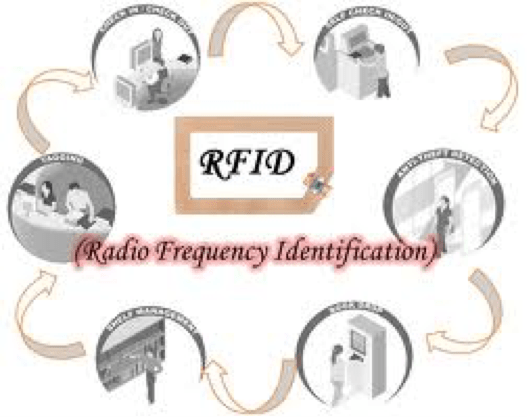Radio-frequency identification (RFID) is the wireless use of radio signals which enable the transference of data, for the purposes of identifying and tracking tags attached to objects. RFID tags contain electronically stored information. Some tags are powered by and read at short ranges (a few meters) via magnetic fields , others use a local power source such as a battery.
Battery powered tags may operate at hundreds of meters. Unlike a bar code the tag does not necessarily need to be within line of sight of the reader, and may be part of the tracked object.
RFID tags are used in many industries. An RFID tag attached to an washing machine, automobile or computer during assembly can be used to track it once it leaves the plant. Pharmaceutical products or any devices can be tracked through factories or warehouses. Livestock and pets may have tags injected, allowing positive identification of the animal.
On off-shore oil and gas platforms, for example, RFID tags are worn by personnel as a safety measure, allowing them to be located 24 hours a day and to be quickly found in emergencies.


